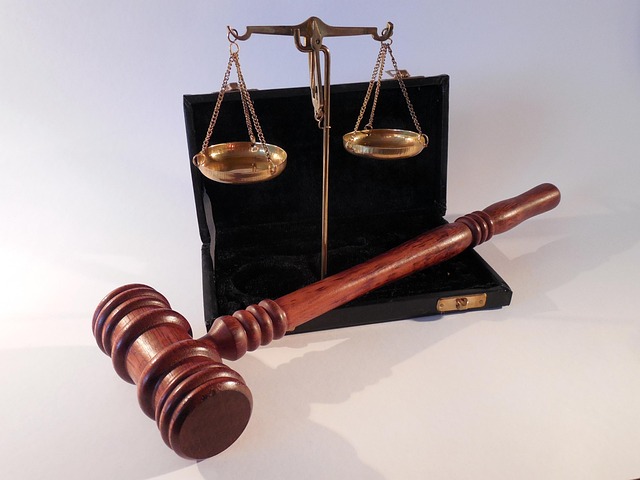Corporate crime investigations rely on a robust regulatory framework and deep understanding of "Understanding Regulatory Law" to navigate litigation stages. This includes fact-finding, evidence gathering, witness questioning, and legal assessment. By reviewing organizational activities for red flags, investigators can uncover anomalies like financial irregularities leading to settlements or, for white-collar crimes, potential charge dismissal. Litigation stages encompass filing complaints, discovery, trials, and sentencing, with strict adherence to protocols ensuring admissible evidence for fair outcomes. Prevention focuses on enhancing corporate governance, internal controls, and ethical conduct.
Corporate Crime Investigations delve into the intricate process of uncovering and addressing illegal activities within organizations. This comprehensive guide explores critical aspects, from understanding the regulatory framework and identifying red flags, to navigating legal procedures, collecting evidence, and ensuring accountability through sentencing and prevention. By examining these litigation stages, businesses can better grasp the importance of compliance and the consequences of non-adherence to the law.
- Regulatory Framework: Laying the Legal Groundwork
- Crime Identification & Reporting: Uncovering Red Flags
- Litigation Process: Navigating Legal Procedures
- Evidence Collection & Analysis: Unraveling the Truth
- Sentencing & Prevention: Ensuring Corporate Accountability
Regulatory Framework: Laying the Legal Groundwork
The foundation for investigating corporate crime lies in a robust regulatory framework, which provides the legal groundwork for holding businesses and their representatives accountable. Understanding Regulatory Law is paramount as it dictates the rules, regulations, and guidelines that govern corporate conduct. This includes compliance with industry-specific standards, anti-corruption measures, data privacy protections, and more.
When a potential corporate crime is identified, investigations proceed through various litigation stages. These stages involve fact-finding, evidence collection, witness interviews, and legal analysis. The ultimate goal is to establish liability and secure justice. In many cases, especially for white-collar offenses, the outcome may lead to settlements or, if all charges are completely dismissed, a complete dismissal of all charges, providing a fresh start for the respective business.
Crime Identification & Reporting: Uncovering Red Flags
Corporate crime investigations begin with a meticulous review of an organization’s activities to identify potential red flags indicative of illegal practices. These red flags can manifest in various forms, from financial irregularities and suspicious transactions to policy violations and unethical conduct. By understanding regulatory laws and their litigation stages, investigators can navigate the complex landscape of corporate crime effectively.
For instance, an unusual spike in expenses, unaccounted-for assets, or frequent changes in high-level personnel might suggest underlying issues warranting further inquiry. Investigating these anomalies involves a comprehensive examination of documents, interviews with key stakeholders, and a deep dive into the organization’s general criminal defense strategies. Knowing all stages of the investigative and enforcement process is crucial for avoiding indictment and ensuring compliance with legal requirements throughout.
Litigation Process: Navigating Legal Procedures
Corporate crime investigations often lead to complex legal battles, where understanding the litigation process is paramount. The journey through the legal system involves a series of well-defined stages, commonly referred to as the litigation stages. These stages include initial complaint filing, discovery, pretrial activities, and ultimately, trial or settlement negotiations. Each stage has specific requirements and deadlines, demanding meticulous attention from both prosecution and defense teams.
Navigating these procedures demands an unprecedented track record of legal expertise. The defense strategy should encompass a thorough analysis of the regulatory law applicable to the case, ensuring compliance with every norm. For corporate entities accused of crimes, securing winning challenging defense verdicts isn’t just about presenting general criminal defense arguments; it involves crafting compelling narratives that consider the unique context and intentions behind the organization’s actions.
Evidence Collection & Analysis: Unraveling the Truth
Evidence collection and analysis play a pivotal role in corporate crime investigations, especially during the litigation stages. Understanding regulatory law is crucial here as it dictates the rules for gathering and presenting evidence in court. The process involves meticulous documentation, data extraction, and witness interviews to reconstruct the events leading up to the illegal activities. For high-stakes cases involving white-collar crimes across the country, the stakes are incredibly high, making every detail critical.
Forensic experts employ advanced techniques to sift through digital remnants, uncover financial trails, and interpret complex data patterns. This in-depth analysis helps establish a clear narrative, distinguishing between legitimate business practices and criminal intent. By following established protocols, investigators ensure that evidence is admissible and robust enough to stand up in court, ultimately leading to fair and just outcomes.
Sentencing & Prevention: Ensuring Corporate Accountability
In the realm of corporate crime investigations, sentencing and prevention play a pivotal role in ensuring accountability. Once a company or individual is found guilty through understanding regulatory law and navigating all stages of the investigative and enforcement process, the next crucial step is determining an appropriate sentence. This not only serves as a deterrent for future offenses but also aims to achieve extraordinary results in high-stakes cases. The litigation stages, from investigation to trial, are designed to uphold justice and send a clear message: corporate misconduct will not be tolerated.
Effective prevention strategies go beyond punishment. They involve enhancing corporate governance practices, implementing robust internal controls, and fostering a culture of ethical conduct. By focusing on these aspects, companies can proactively manage risks and avoid the legal and reputational consequences associated with corporate crime. This holistic approach ensures that businesses are held accountable not just through sentencing but also by adopting measures that promote integrity and transparency throughout all operations.
Corporate crime investigations require a multifaceted approach, from understanding the regulatory framework and identifying red flags, to navigating litigation stages and collecting evidence. By adhering to legal procedures outlined in the regulatory groundwork, investigators can ensure corporate accountability through effective sentencing and prevention strategies. Familiarizing yourself with these key aspects—from crime identification to sentencing—is essential for unraveling complex corporate misconduct and fostering a culture of integrity within organizations.






